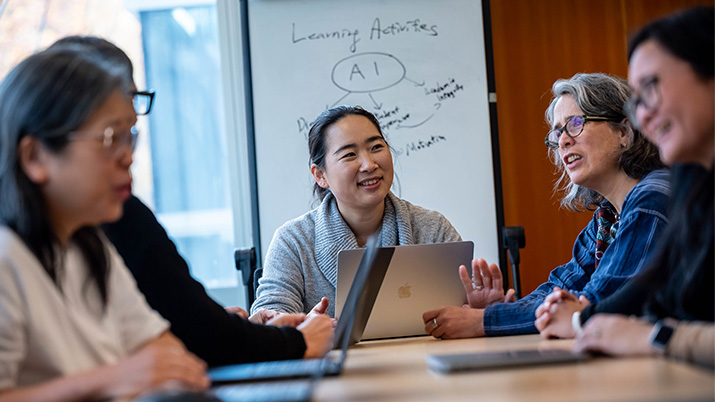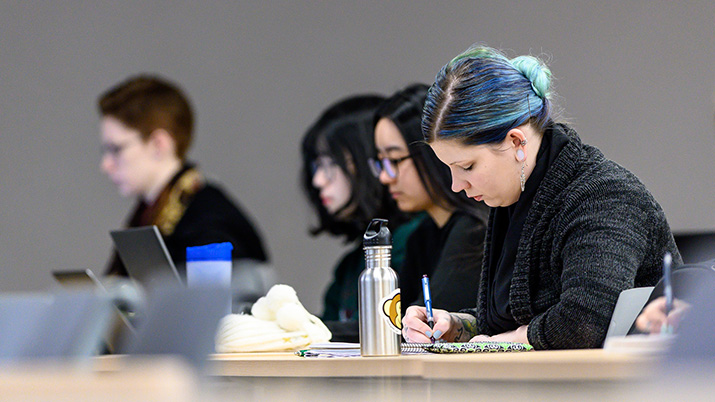In recent years, many of us have experimented and experienced new modes of course delivery. What were redesign approaches, goals, challenges, and motivations? What can we learn from examples out there?
In this session, instructors share their experiences and expertise on hybrid and multi-access courses.
Changing course: Hybrid opportunities for students in French, Hispanic, and Italian language programs
Dr. Luisa Canuto | Department of French, Hispanic and Italian Studies
A team of faculty, graduate and undergraduate students from the French, Italian and Spanish language programs is developing twelve hybrid language courses for first-and-second-year students. These courses build on online teaching experiences, increase accessibility and flexibility, and similarities among these three romance languages. This presentation by Dr. Luisa Canuto will discuss the learning principles and feedback from FHIS instructors and students that guide the design. The model aims to enhance student-instructor interaction, promote creativity and collaboration, and involve graduate students in teaching and course development. Luisa will also present the evaluation plan and how they will share data with the language community in and outside UBC.
Hybrid tutorial sessions for Chinese oral practice
Dr. Qian Wang | Department of Asian Studies |
Oral Practice (OP) sessions are an integral part of the Chinese courses. OP sessions complement lectures and allow students to be engaged in speaking and listening practice, communication skills building, as well as cultural explorations in a one-on-one setting with a volunteer. Learn how Dr. Qian Wang applied a hybrid approach to offer OP tutorial sessions to provide maximum flexibility to students.
Creating an accessible and equitable learning experience with hybrid course design
Dr. Amirpouyan Shiva | Department of Anthropology
What are lessons learned from designing and teaching a large, upper-level, hybrid course? Dr. Amirpouyan Shiva will be sharing his experience and discuss practical strategies for creating an equitable learning experience within a hybrid design. In addition, he will demonstrate how this hybrid course has enhanced accessibility, catering to the diverse needs of all students.
Flexible, immersive and interactive modules to create hybrid learning environments in the geosciences
Dr. Nina Hewitt | Department of Geography
The pandemic opened a door to new opportunities and techniques for flexible and accessible learning. In this presentation, Dr. Nina Hewitt will discuss how she has incorporated and built upon some of these modes to create hybrid teaching modules in her environmental and geoscience courses, including her 3rd year Environmental policy course (GEOG 319) and a Biogeography/Ecology and global change course (GEOS 307). Student response reinforces the value of this new direction.


